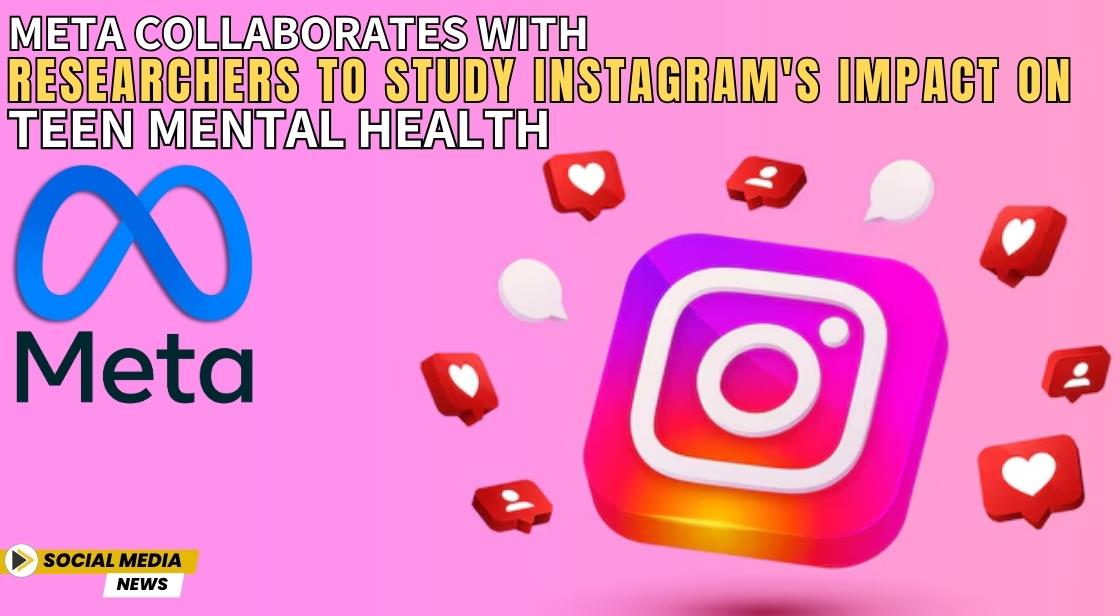Meta Collaborates with Researchers to Study Instagram's Impact on Teen Mental Health

News Synopsis
For years, a contentious relationship has existed between Instagram and mental health, particularly when it comes to teenagers and young adults. The ever-present allure of social media, with teens spending hours glued to their phones, has become a growing concern linked to a global rise in mental health issues among youth.
A 2023 study by the Pew Research Center revealed that a concerning 8% of teens use Instagram "almost constantly." While excessive screen time is demonstrably harmful, assigning sole blame to Instagram remains a complex question.
In a significant move towards transparency, Meta has finally cracked open Instagram's data vault, allowing a select group of researchers to delve deeper into this critical issue.
Unveiling the Link Between Social Media and Teen Wellbeing
Partnering with the Center for Open Science (COS), this pilot program aims to illuminate the complex relationship between social media usage and the mental well-being of teenagers. This initiative paves the way for a series of independent studies, fostering a comprehensive understanding of this intricate dynamic.
However, a crucial question arises: Does this program breach user privacy? Researchers will only have access to anonymized data for a limited period of six months. This data may include the number of accounts a teen follows, their typical Instagram usage duration, and account settings. Notably, Meta will not provide access to users' demographics, nor will the contents of posts, comments, or messages be included.
Independent Research for Unbiased Insights
As reported by The Atlantic, COS will have complete autonomy in selecting up to seven research proposals across various mental health domains. This selection process will be free from any influence by Meta, ensuring unbiased research.
Teenager participation in the study is crucial, and researchers will need to obtain informed consent from parents. According to COS, analyzing data directly from Instagram, coupled with other research methods like surveys and clinical studies, can provide a holistic understanding of teen well-being. This multifaceted approach offers valuable insights that might be missed by relying solely on a single method.
Curtiss Cobb, Meta's president of research, echoed this sentiment in a statement: "Parents, policymakers, academics and technology companies are all grappling with how to best support young people navigating online spaces. To paint the full picture, we need more data."
Transparency and Collaboration: A Step in the Right Direction
The impact of Instagram on teen mental health has been a hot-button topic for some time. In 2021, a whistleblower named Frances Haugen exposed confidential documents, including internal studies by Meta. These studies revealed that teenagers themselves attributed rising anxiety and depression to their Instagram use. This revelation fueled calls from scientists urging Meta to share its mental health research more openly, sparking a movement towards greater transparency and collaboration.
Conclusion: Unveiling the Complexities of Social Media and Mental Health
This groundbreaking collaboration between Meta and the Center for Open Science marks a significant step forward in understanding the intricate web connecting social media use and adolescent mental health. By granting access to anonymized data and fostering independent research, this program prioritizes transparency and unbiased exploration of this complex issue.
The potential benefits of this initiative are vast. The insights gleaned from these studies can inform the development of evidence-based solutions to safeguard teen mental well-being in the digital age. This knowledge can empower parents, educators, policymakers, and tech companies to create a more supportive online environment for young people.
However, it is crucial to acknowledge that this research is just the beginning. The fight to protect teen mental health in the digital world requires ongoing efforts from all stakeholders. Continued collaboration between tech giants, researchers, and mental health professionals is essential to translate these findings into actionable solutions. Only through a multi-pronged approach can we create a future where technology empowers, rather than endangers, the well-being of our youth.
You May Like









